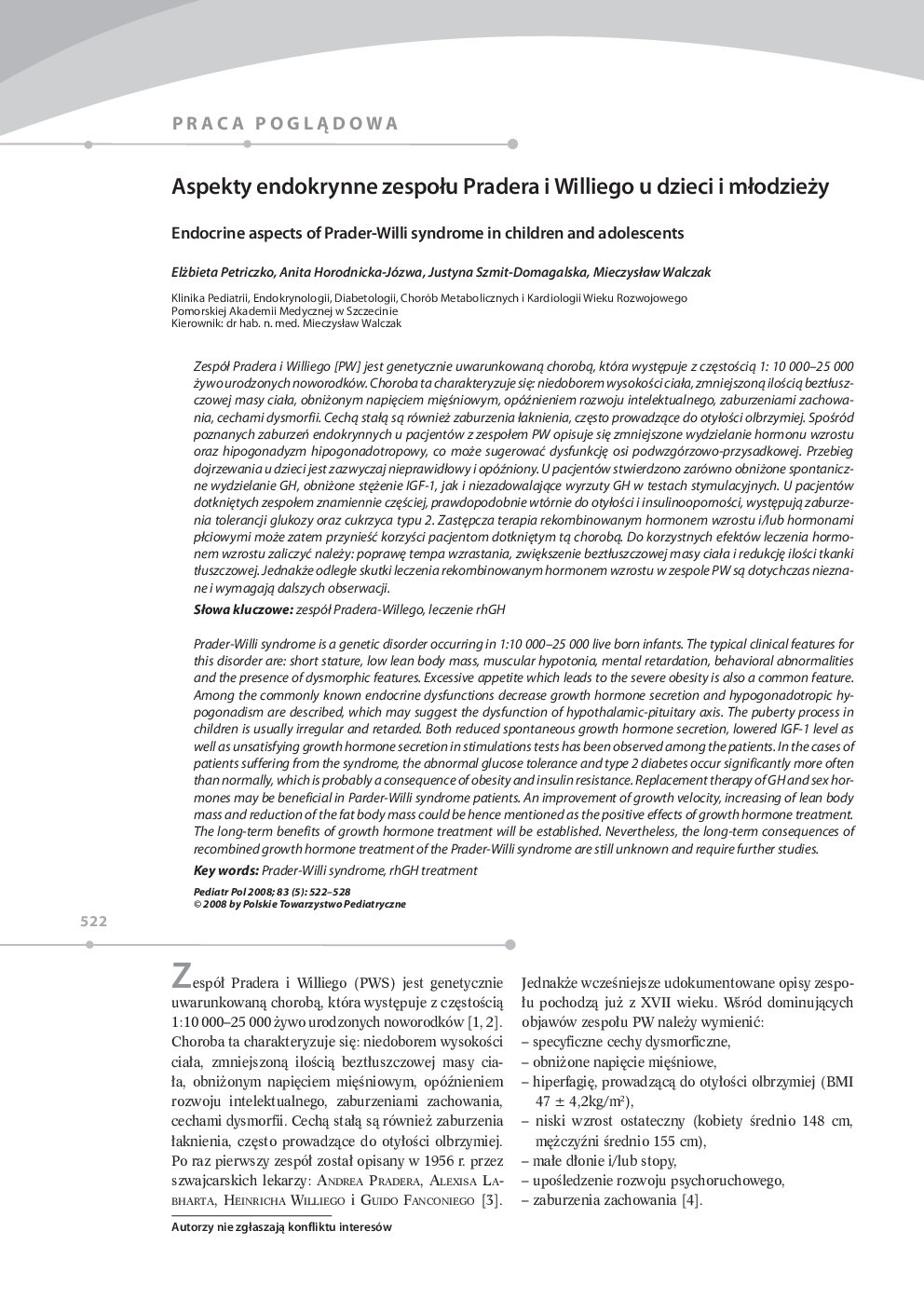| Article ID | Journal | Published Year | Pages | File Type |
|---|---|---|---|---|
| 2680278 | Pediatria Polska | 2008 | 7 Pages |
Abstract
Prader-Willi syndrome is a genetic disorder occurring in 1:10 000-25 000 live born infants. The typical clinical features for this disorder are: short stature, low lean body mass, muscular hypotonia, mental retardation, behavioral abnormalities and the presence of dysmorphic features. Excessive appetite which leads to the severe obesity is also a common feature. Among the commonly known endocrine dysfunctions decrease growth hormone secretion and hypogonadotropic hypogonadism are described, which may suggest the dysfunction of hypothalamic-pituitary axis. The puberty process in children is usually irregular and retarded. Both reduced spontaneous growth hormone secretion, lowered IGF-1 level as well as unsatisfying growth hormone secretion in stimulations tests has been observed among the patients. In the cases of patients suffering from the syndrome, the abnormal glucose tolerance and type 2 diabetes occur significantly more often than normally, which is probably a consequence of obesity and insulin resistance. Replacement therapy of GH and sex hormones may be beneficial in Parder-Willi syndrome patients. An improvement of growth velocity, increasing of lean body mass and reduction of the fat body mass could be hence mentioned as the positive effects of growth hormone treatment. The long-term benefits of growth hormone treatment will be established. Nevertheless, the long-term consequences of recombined growth hormone treatment of the Prader-Willi syndrome are still unknown and require further studies.
Keywords
Related Topics
Health Sciences
Medicine and Dentistry
Dermatology
Authors
Elżbieta Petriczko, Anita Horodnicka-Józwa, Justyna Szmit-Domagalska, MieczysÅaw Walczak,
